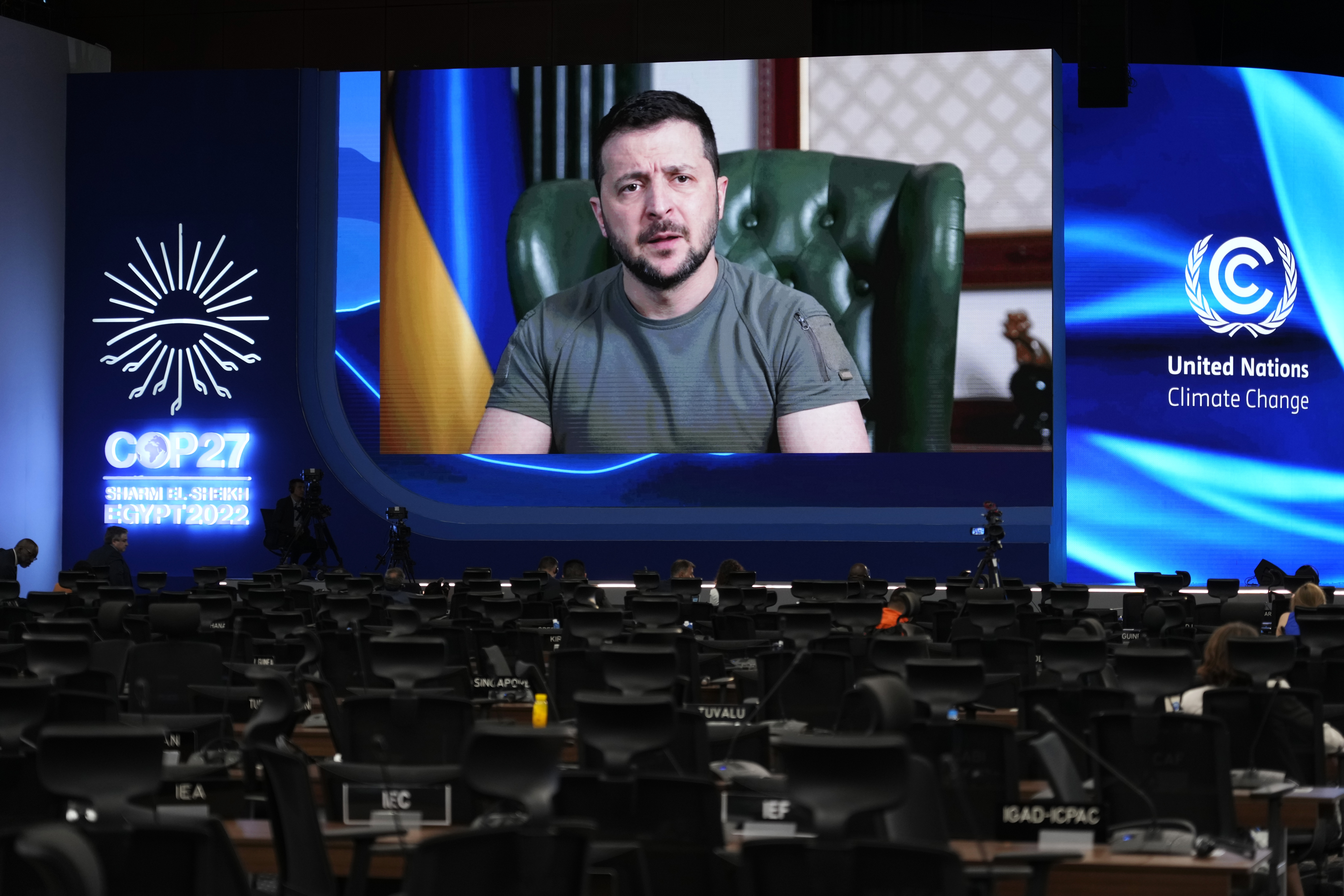
Ukrainian President Volodymyr Zelenskyy’s new stance that peace talks with Russia can begin with Vladimir Putin in power was directly due to soft nudging by the Biden administration, according to two people familiar with the situation.
Zelenskyy outlined five conditions for negotiations on Monday, including ones he’s said before, like the restoration of Ukraine’s territorial integrity, the punishment of war crimes and reparations. What he didn’t say, unlike in past announcements, was that Putin must be out of power before such conversations can take place.
The change, one of the people said, came after days of talks between Kyiv and Washington — including an in-person visit with Zelenskyy by national security adviser Jake Sullivan. U.S. officials didn’t directly tell Zelenskyy and his aides in Ukraine to alter their position, a senior administration official said, but did relay that Kyiv must show its willingness to end the war reasonably and peacefully.
The hope is it would reinforce to the world that it’s Ukraine, not Russia, that wants to resolve the conflict. “That doesn’t mean they need to go to the negotiating table right now. We don’t even think right now is the right time based on what Russia is doing,” the official continued. “But they must show a willingness to resolve the conflict because no one wants this conflict to end more than Ukraine.” The individuals were granted anonymity to discuss sensitive and private conversations.
Democrats and Republicans have in recent weeks put pressure on Biden’s team to push for a diplomatic resolution to the war. U.S. officials have since confirmed that they’ve been in touch with their Ukrainian and Russian counterparts to deescalate tensions and avoid miscalculations, though there’s no imminent campaign to get the warring parties talking.
Zelenskyy announced his new stance just before congressional elections in the U.S. in which Republicans are expected to recapture at least one chamber — potentially endangering further financial and military support for Ukraine.
Representatives for Ukraine’s government didn’t immediately respond to requests for comment. The National Security Council declined to comment for this story, but pointed to Sullivan’s remarks while in Kyiv last week. “The conversation that we need to have with the international community in support of Ukraine is, what are the terms of a just and lasting peace for Ukraine? … That’s what we are intent on driving towards, that’s what we would support, and that’s what we believe our collective efforts can help achieve,” Sullivan said during his visit.
William Taylor, a former U.S. ambassador to Ukraine, argued that Ukraine’s five conditions are reasonable since they adhere to international law and make Russia pay for its transgressions. He also said Zelenskyy seems sincere in his offer for peace talks as long as Putin is serious.
“We’ve seen President Putin bend to reality,” Taylor said, noting that Russia left and rejoined a grain-shipping deal and tamped down nuclear threats. However, real negotiations probably wouldn’t happen until Moscow “takes some more military defeats.”
Kurt Volker, special representative for Ukraine in the Trump administration, argues the U.S. shouldn’t publicly push Kyiv toward the negotiating table — at least not now.
“Clearly Putin has no intention of negotiating seriously or accepting these conditions. Putin is determined to continue fighting and targeting Ukrainian cities. Ukraine needs to be decisively winning on the ground, retaking its territory — and the U.S. should be trying to help the Ukrainians do that as quickly as possible,” he said.
The Washington Post first reported that the Biden administration wanted Kyiv to drop the Putin-out-of-power condition.

 2 years ago
2 years ago








 English (US) ·
English (US) ·